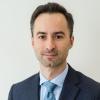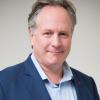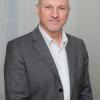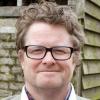A highly successful Citibank investment banker has decided to make amends for his self-centred life in the City by helping the church in London to feed the homeless. Being Italian, Luca brings a fresh Romano-culinary dimension to the needy palates of west London.
A year ago the high flying lifestyle all became too much. Luca was diagnosed as a food addict and, close to death, he was admitted into the PROMIS treatment centre in west London under the care of London’s leading addiction specialist Dr Robert Lefever. The years of abuse had left Luca within an inch of life, skeletal and emotionally shattered. He referred to himself as looking like “an orange spider”. As far as the medical profession was concerned, Luca like so many other addicts was considered to be a write-off. Addiction is a killer disease with a 100% fatality rate. You cannot cure an addict, but according to Dr Lefever you can help addicts to return to managing a happy, ‘normal’ and productive life.
Inappropriate self-medication
The term ‘addiction’ can be used broadly to describe the continual use of substances or behaviour to the point of self-destruction. It affects approximately ten per cent of the population. An addict suffers from depression and ‘uses’, or self-medicates inappropriately in order to make themselves feel better. The form of inappropriate self-medication whether it be anything from alcohol, cocaine, prescription drugs, over-eating, gambling, sex addiction or compulsive helping is almost irrelevant when it comes to implementing treatment in the medium to longer term.
In most cases it’s not a case of the whisky or the food (too much or too little). That provides temporary pain relief, but demands increasing levels of pay-back. The underlying pathology is a mental disease that keeps making an addict repeat the behaviour regardless of the fact that they know it’s killing them. The psychopathology underpinning it all is denial. Mental anguish combined with denial - this is not a healthy combination, but it is a striking feature shared by some of the world’s most creative people. Alcoholic, heroin addict, gambler, anorexic – it doesn’t matter – it’s all the same.
Anaesthetising Feelings
Worse still, the anaesthetic effect of these forms of inappropriate self-medication alienates the addict from their feelings. It is ‘feelings’ that drive the addiction, but unless these are understood and dealt with appropriately there is little hope for a remedy. That is why there has to be an initial period of abstinence or detox as psychological treatment cannot begin until the patient is back ‘in touch’. At that point, and when the feelings start to return, only another addict can understand or help, which is the fundamental principle behind group therapy. For most addicts, it is simply too much to ask them to get better alone. Although one-to-one counselling does have its place, it is not normally sufficient especially when the counsellor is not an addict themselves.
What mental health?
Luca goes on to explain how his addiction in common with most forms of addiction is a type of disease. The basic human qualities that affect general mental health include emotional, physical, spiritual, financial and mental well-being. These qualities become lost and obscured in the addict. Recovery is all about learning a new daily life-style to have these qualities restored and put in context against a set of personal moral values. To do this mental health professionals, along with peer counselling help the addict to understand who they are again and what makes them feel the way they do. Managing your feelings and taking appropriate action is the path back to sanity.
So a year on and Luca is immersing himself in a daily programme of recovery; he seems in excellent spirits and has found a new vocation that includes providing counselling and help to others. He will never recover fully as once an addict – always an addict, but he looks good and as a result of this and because he is helping to feed the homeless he feels he is participating in and is a part of society again.





